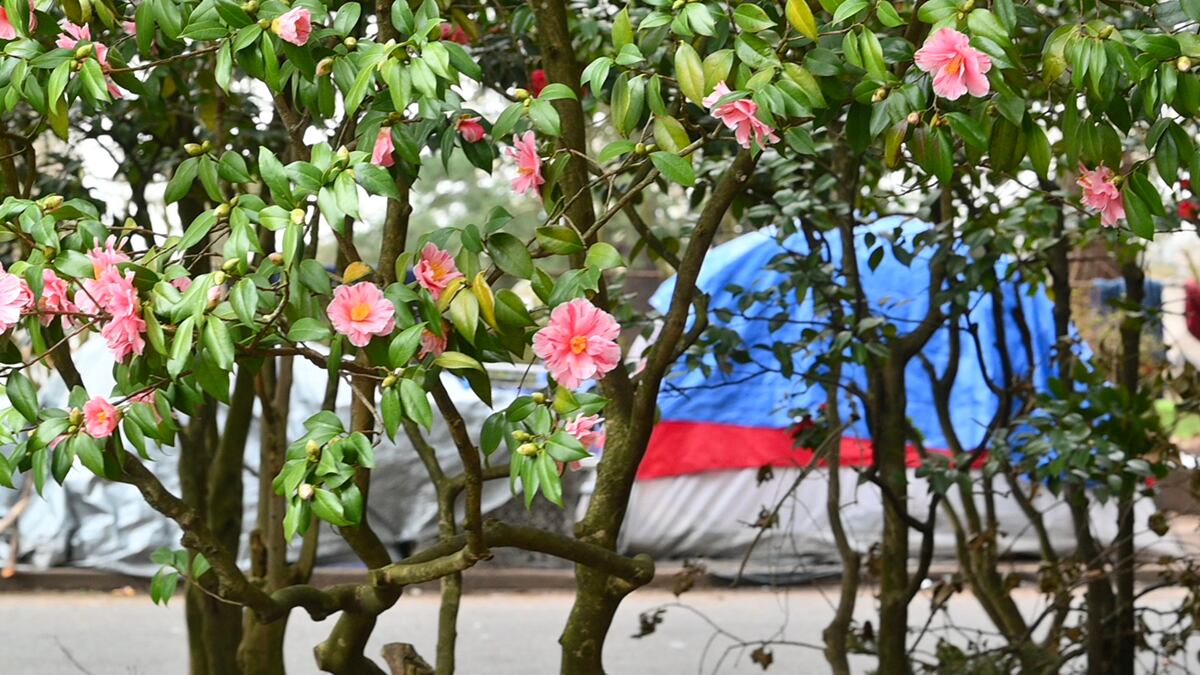About two dozen activists gathered at Laurelhurst Park on March 30 to physically block city hazardous waste removal contractors from sweeping more than 15 tents from the curb strip along Southeast Oak Street.
It's the second time in six months that progressive activists have gathered to obstruct the removal of a homeless encampment from the iconic park in an affluent neighborhood. The last standoff lasted weeks, and activists say they're willing to stick it out that long again.
The city contractor, Rapid Response Bio Clean, says the problem with the encampment is its size: At least 15 tents line the park's southern edge, more than the city's requested maximum number, which is eight tents.
Rapid Response Bio Clean arrived Tuesday morning but left soon after, its two workers outnumbered by a crowd of people in masks, hoodies and track pants. The activists set about cooking up a hot breakfast of pancakes, potatoes and eggs on camp stoves.
From the bed of a truck, a white-haired woman asked people to consider taking shifts so they didn't get burned out. They didn't expect Rapid Response to return that day and it seemed that the group—seeking to support the campers—might be there for weeks. The situation could replay the fall's drawn out November to December standoff, which ended with all the tents behind the park completely removed.

"Deescalate," the woman said. "We don't want to make this a direct action"—a phrase that carries a strong connotation of aggression and property damage. And unlike a direct-action march, no one wore identity-obscuring clothing. Instead, the organizers urged a gentle approach to protecting the people living in the park.
"Rapid [Response] asked police not to come, but if a resident calls, they will come. Housed people escalating the situation only makes the situation more dangerous for the unhoused," said the organizer, who declined to give her name.
As if on cue, a Chevrolet Tracker SUV barreled down Oak Street, and the crowd scattered away from the road. The SUV squealed to a stop, reversed, then sped off. Out the window, the driver boasted he had a gun.
Though the group plans to stay with the encampment for the long haul, what they'll do in the face of an actual sweep seems unclear. "Ask them what they need," one volunteer responded. "Help them carry their stuff. We're basically just here to provide support."
If police were anticipated, no shields were in sight—only coffee and pie.


